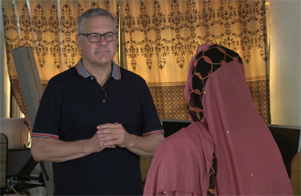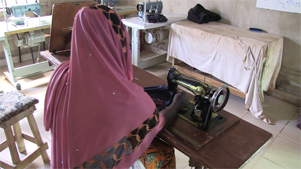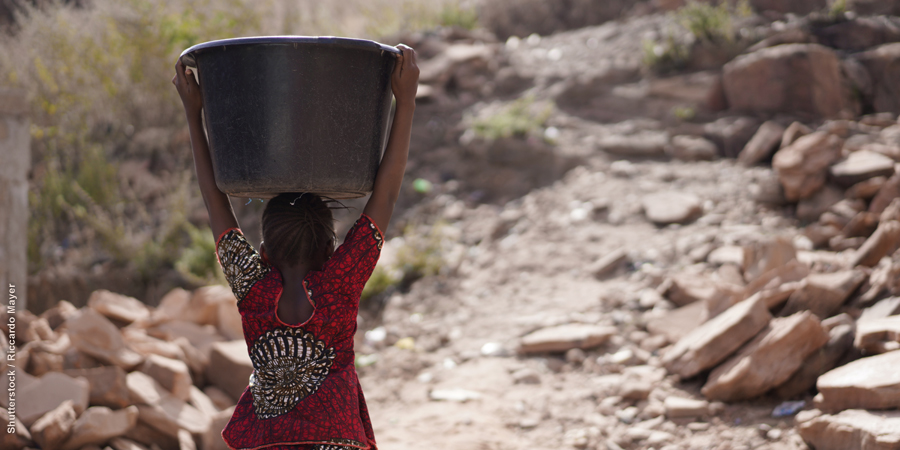Praying for our Persecuted Brothers and Sisters
By Greg Musselman, Minister-at-Large for
The Voice of the Martyrs Canada and 100 Huntley Street
Each November, believers around the world unite their hearts together in prayer on behalf of our persecuted brothers and sisters in Christ. In Canada, many churches even hold special services on the first Sunday of November to encourage congregants to remember those who are suffering severe hardships for their faith. The International Day of Prayer for the Persecuted Church (IDOP) presents us all with another opportunity to compassionately intercede on behalf of the estimated 260 million believers around the world who are experiencing high-to-extreme forms of persecution.
Over the past two decades, I have had the privilege of meeting and interviewing hundreds of these suffering followers of Jesus. On November 10th, 100 Huntley Street is presenting a special program where we will meet four brave Nigerian women who have each endured tremendous challenges because of their decision to follow Jesus.
 Northern Nigeria is one of the most violent places in the world to be a Christian; if not the most violent of all. One of the ladies you will meet during the November 10th special program, featuring the country of Nigeria, is “Rebecca” (whose identity has been concealed for security reasons). Rebecca told me how she had a dream one night in which she saw a radiant light that kept shining to the point where she couldn’t see anything beyond it. After describing this dream to her aunt, Rebecca – who happened to be a Muslim at the time – was advised to pray about it while performing her Islamic prayers. So, this is exactly what she did.
Northern Nigeria is one of the most violent places in the world to be a Christian; if not the most violent of all. One of the ladies you will meet during the November 10th special program, featuring the country of Nigeria, is “Rebecca” (whose identity has been concealed for security reasons). Rebecca told me how she had a dream one night in which she saw a radiant light that kept shining to the point where she couldn’t see anything beyond it. After describing this dream to her aunt, Rebecca – who happened to be a Muslim at the time – was advised to pray about it while performing her Islamic prayers. So, this is exactly what she did.
The next night, Rebecca had another dream. This time, she saw a Man who was wearing white clothing. He introduced Himself as “the Way, the Truth and the Life.” After describing the second dream to the same aunt, she was then advised to speak with the pastor of her aunt’s church. When the Christian leader explained to Rebecca that the Man in white was Jesus, she made the life-changing decision to follow the Lord – who was literally “the Man of her dreams”!
When the new believer’s Muslim family members found out that she had become a Christian, the persecution started. On one occasion, Rebecca’s grandfather tried to suffocate her, but she was fortunately rescued by some concerned neighbours just in time. In a separate incident, Rebecca’s brother threw rocks at her face, resulting in the partial loss of her sight. For a long time, she couldn’t see out of her right eye. Culminating these dire challenges, it was decided by Rebecca’s family that her ultimate punishment for leaving Islam and becoming a Christian should be death.
 One night, the young believer heard an inner voice prompting her to leave the community because she would otherwise be killed the next day. After walking towards her destination for about ten hours, she was helped by a pastor whose family kindly took her into their home. Eventually, Rebecca arrived in the North Central region of Nigeria where she was further assisted by Christian Faith Ministries (CFM), a trusted ministry partner of The Voice of the Martyrs Canada and 100 Huntley Street. There, in the safety of the CFM women’s centre, Rebecca began rebuilding her life. Not only did she learn basic skills such as how to read and tailor clothing at their vocational training facility, but this young Christian woman also grew in her relationship with God and received greatly needed emotional healing.
One night, the young believer heard an inner voice prompting her to leave the community because she would otherwise be killed the next day. After walking towards her destination for about ten hours, she was helped by a pastor whose family kindly took her into their home. Eventually, Rebecca arrived in the North Central region of Nigeria where she was further assisted by Christian Faith Ministries (CFM), a trusted ministry partner of The Voice of the Martyrs Canada and 100 Huntley Street. There, in the safety of the CFM women’s centre, Rebecca began rebuilding her life. Not only did she learn basic skills such as how to read and tailor clothing at their vocational training facility, but this young Christian woman also grew in her relationship with God and received greatly needed emotional healing.
Rebecca is just one of thousands of followers of Jesus in Nigeria who have experienced firsthand the plight of persecution. More than 6,000 of our Nigerian brothers and sisters were killed last year alone because of their faith in Christ. Will you pray for this troubled African nation? Will you pray for the more than 30,000 Christians who are presently imprisoned and tortured in North Korean concentration camps because they are considered a threat to the “personality cult” of the late Kim II-sung and his succeeding family? Will you prayerfully uphold believers from Pakistan, Afghanistan, China and India – especially those who are enduring extreme hardships – before God’s throne of grace?
To find out about current prayer needs relating to the persecuted church, please visit VOMC’s website at VOMCanada.com. The theme for this year’s International Day of Prayer, “Not Abandoned,” is based on 2 Corinthians 4:9: “Persecuted, but not abandoned; struck down, but not destroyed.”
Please join us in this international prayer initiative to remind believers like Rebecca and the other women who will be featured during the upcoming 100 Huntley Street special that though they have been severely persecuted and struck down, they have not been destroyed nor abandoned! This special programming will also help raise funds for CFM’s new trauma centre, which is to be named upon completion “Mara’s House.”
To learn more about this new expansion to CFM’s facilities, and how it will be used to further help persecuted women and girls in Nigeria, go to Crossroads.ca/nigeria. Through this collaborative ministry project, you and I can express our love and support for these Nigerian sisters in Christ – and many others like them – who need a safe place of refuge and healing so they can recover from the aftermath of severe persecution.
With you in our Lord’s ministry to His suffering people,

Greg Musselman



